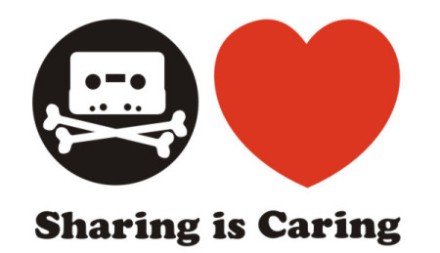As heartbroken as I am, this is the last blog I will have to write for this class. I had lots of fun exploring various media platforms such as WordPress to express my ideas online. I would have never considered blogging until I took this course. Moreover, I enjoyed using other media functions there were exposed to us throughout the year. For instance, we had to produce a podcast for one of the modules which I had plenty of fun doing. It was different to say the least. In addition, we had to produce a movie using a program of our choice. I used Mozilla Popcorn, which was so simple, yet effective. Lastly, we were required to produce a Storify article about a topic of importance to ourselves. I would have never known that these programs were looming on the internet if it were not for this online class. In addition, I would have continued to envision that Twitter and Facebook were the only tools of online communications, which is clearly wrong. Simplicity was a notable trait shared among these platforms discussed. Because of this, I think that I would start to become more of a produser in the near future. My view towards online productions has also altered throughout this year. I used to despise producing a blog every month but now, I do not mind it at all. In fact, I enjoy it and find it such a relaxing task to do. It is not often that we are asked to express our opinions freely about a certain topic, as well as using this particular style of writing.
Facebook and Twitter were the first two social media platforms that I was introduced to. Lievrouw states that, “The relational Internet, as pointed out previously, has become a venue for interpersonal interaction and personal expression, not only straightforward information-seeking or the consumption and appropriation of media products.” I believe that this is the primary intent for these social media platforms. We use these programs because it is difficult to stay in constant touch with our friends. Most of our friends are probably away for school and these real-time updates are useful to remain updated in their lives. You can also communicate via text message but Facebook makes it easier to remain updated to all of your friends. These options are popular because these platforms are easily accessible using our mobile devices. It is unlikely that most of us do not own a WordPress App to blog every day, nor do we have a Storify App to create articles on the go. It seems that we are used to the apps installed on our phones.
Becoming a citizen journalist through Storify was interesting and simple to say the least. Almost anyone can gather information from various sources and make a creative story out of it. Simplicity is attractive for many individuals and it could pose to be a key feature to encourage many to become produsers in the future. This may not always be the case because producing something of this nature may not be of interest for many. Moreover, this media platform could also become a problem. The key factor to consider is that anyone can easily create an account on Storify. An average individual without any credentials could create articles freely and this will get us to start questioning who and what we being to trust online. I know that professional reporters use Storify to produce content. A couple weeks ago, a story on a Mike Brown, who was a former Toronto Maple Leaf hockey player, was traded to the Edmonton Oilers. When scrolling down on Twitter that day, a few professional reporters attached links in their tweets to Storify. Yes, these were stories created about him using this website. If both professional and non-professionals are easily capable of creating such content, we have to be wearier of what we begin to trust online because of the credential issue.
Even if there are plenty of methods currently available that allow us to become online produsers, we may still feel inclined not to utilize them. Let us reflect back when we used Wikipedia in an earlier module. When I was reading Bird’s article, I couldn’t help but to notice the following quote: “Key examples for such produsage can be seen in the collaborative development of open source software, the distributed multi-user spaces of the Wikipedia, or the user-led innovation and content production in multi-user online games’ more explicitly equated ‘produsage’ with fan activity, as fans were able not only to communicate amongst themselves about media but also to participate in the creation of digital content, problematizing further the notion of the audience.” On the surface, Wikipedia does sound like an appealing tool to utilize. Therefore, it is expected that there will be plenty of participants. Wikipedia allows users to create an informative page, which technically combines the knowledge of multiple individuals. However, due to the nature and anonymity of the internet, it is difficult to tell who wrote the context. We once again have that credibility issue. There were five university students in my group in charge of editing the “Coors Light” page. I doubt any of us had expertise in this product but it was simple for us to create an account and edit the page. Why isn’t there more participation? Maybe it is the fact that we do not have the knowledge about the particular topic, nor we wish to participate generally. We would normally go on Wikipedia to seek information we are unfamiliar with. We are consuming the information most of the time, rather than produsing it.
There are many other limitations to consider that I have yet to mention. Lunenfeld states that “An overabundance of downloading, to the exclusion of uploading leads to what I characterize as cultural diabetes”. This illustrates the fact that we are normally consumers on the internet. It is definitely much easier to consume than it is to produce. When it comes to YouTube, we normally consume most of the time. I think that we get more entertainment watching videos than it is to make them. It is too much work to create these videos generally. In addition, some are more motivated to produce creative videos than others are. Moreover, there are individuals who are qualified to produce content such as articles and other related content. Since it is their responsibility as a professional to produce such content, we may feel unmotivated to do their work for them. This discussion also relates to copyright laws, which was also discussed in one of our previous modules. There have been strict rules recently imposed due to recent copyright problems, which discourages individuals to participate. Individuals fear that any resemblance of original content would be considered as infringement, even if it were unintended. This could lead to plenty of legal problems in the future. Obviously, these could or could not be deliberate infringements but it is difficult to distinguish. There is also the possibility that something you would be willing to produce could be done better accomplished by another individual. The list goes on and on. I guess it all depends on personal preference and what satisfies our needs. Some of the restrictions are legally imposed but others are mentally imposed. It is ultimately our decision as to whether we continue to produce or consume.
Image Source:








